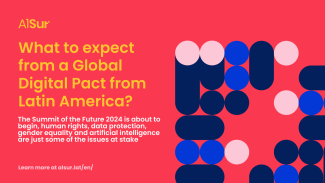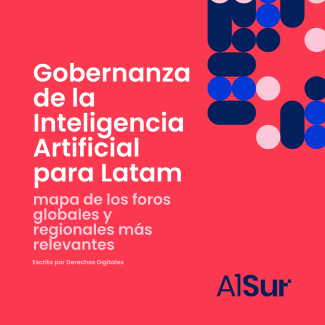Blog
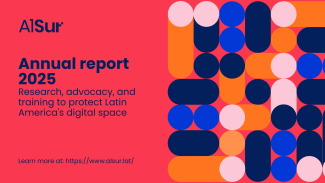
The year 2025 presented a challenging landscape for human rights in digital environments.
The world witnessed serious crises: devastating armed conflicts in Africa and Europe, genocide in Palestine, multilateral tensions, and a worrying apathy on the part of states and companies in the face of the climate crisis. Added to this is the contraction of international cooperation and greater direct participation by large technology companies in political decisions and processes in the region and around the world.
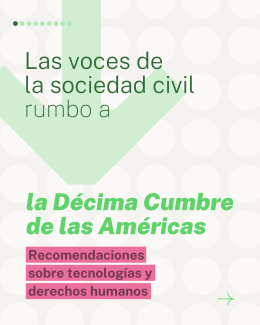
The governments of the region will meet next December in the Dominican Republic for the 10th Summit of the Americas. Several critical issues related to citizen security, shared prosperity, and sustainability have already been defined for the agenda. As this is a decision-making forum that affects the entire region, together with 25 other civil society and academic organizations, we ask that the agenda and decisions taken take into account human rights in the digital age.
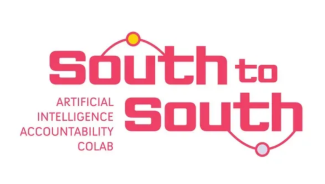
AlSur has established a collaboration with the Pulitzer Center under its South to South AI Accountability CoLab initiative.
This is a program that seeks to strengthen the connection between artificial intelligence (AI) accountability journalism and civil society engagement in the Global South. This initiative recognizes that, without proactive multi-stakeholder engagement, there is a significant risk that AI will replicate historical patterns of inequality, injustice and bias.
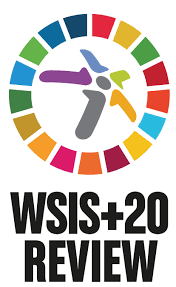
In the framework of the WSIS+20 review process, the AlSur consortium sent its contributions which can be reviewed here.
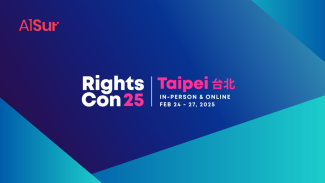
RightsCon is one of the world’s most important events on digital rights and technology. Each year, it brings together activists, academics, civil society organizations, and technology experts to discuss challenges and advancements in the protection of human rights in the digital age. In 2025, this space becomes even more relevant in a context where fundamental rights, both in physical and digital environments, are under threat in many parts of the world—Latin America being no exception.
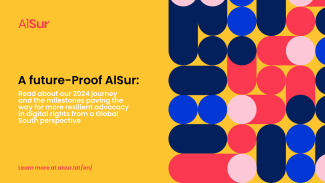
The past year 2024 left us with more shadows than lights with respect to the balance of human rights in digital environments. It was a year marked by multiple violations in political and social conflicts, setbacks in the fulfillment of fundamental rights and greater tensions between States and platforms. It was also marked by the drafting of several international instruments such as the Global Digital Pact (GDC) and the International Convention against Cybercrime - both of which have several aspects that can be criticized and whose reasons we argue below.
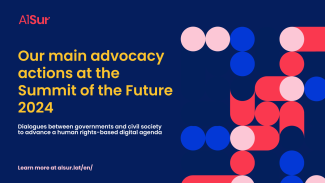
At the end of September, the Summit of the Future took place, an event convened by the United Nations to establish a common agenda of global agreements on various issues, including an “open, free and secure” digital future for all people.
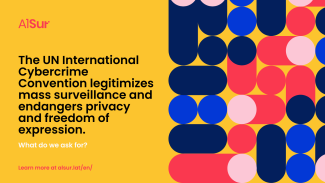
August, 2024
AlSur and its member organizations urge Latin American States not to adopt or ratify the first UN Convention on cybercrime because it contravenes their international human rights obligations.
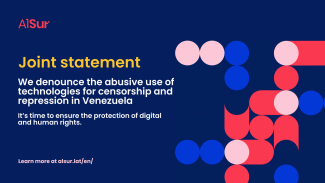
The elections of July 28th in Venezuela have unleashed a climate of lack of transparency, repression, violence and serious human rights violations. As AlSur Consortium, we join the international voices condemning the abuses of the Venezuelan government and demand guarantees for people to be able to demonstrate, protest and express themselves freely in the country.
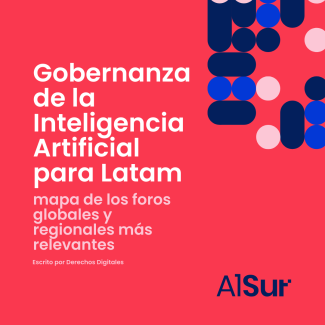
To have clarity on the relevant governance forums for Latin America, it must be said, in principle, that they are mostly facilitated by actors promoting the development agenda that seeks to prioritize the economic benefits stemming from the exploitation and production of AI systems with the aim of boosting the economy and labor market. Among these are the BRICS+, ECLAC, and the G20.


